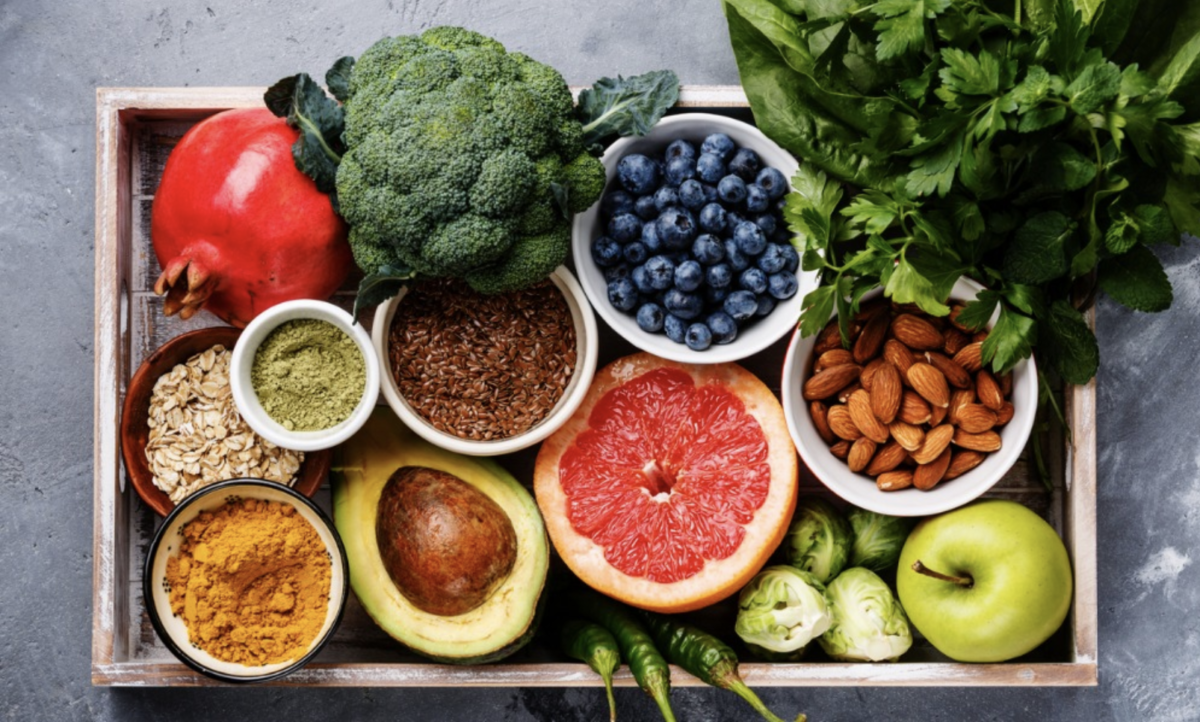Eating a Plant Based Diet to Heal Autoimmune Diseases

There's a lot of evidence that plant-based diets are beneficial for people with autoimmune diseases. By flooding the body with colorful antioxidants, comprehensive micronutrients, and diverse fiber, people with inflammatory conditions can really benefit from this lifestyle change.
Physicians have been using different versions of plant-based diets for decades now and noticed great improvements – sometimes even full reversal (!) – in their autoimmune patients.
So, many people will try a plant-based diet, and find they don't thrive. Or they don't get better. Or worse, they feel worse.
What's going wrong???
Eating a whole-food, plant-based diet often isn't enough for a person with an autoimmune disease. While this is the foundation for maintaining health, there are other steps that facilitate repair and healthy regeneration.
As I like to say, it takes a healing, anti-inflammatory, whole-food, plant-based diet for disease reversal.
Over the years, I have helped people troubleshoot their autoimmune diseases, and have noticed some common factors holding people back.
Here are 7 reasons autoimmune patients nay not feel better on a plant-based diet:
- You're still eating pro-inflammatory foods, even in small amounts. This includes processed vegan foods, oils, excess salt, sugar, and/or animal products.
- You're not eating enough micronutrients. It's not just the absence of pro-inflammatory foods; you have to actually eat LOTS of healing nutrients throughout the day. Raw green leafy vegetables, cruciferous vegetables, and colorful low glycemic veggies are the hallmark of the plan. It should be most of what you eat while healing. This can be done through large salads, green smoothies, green juices, and snacking on raw veggies.
- You haven't removed your food triggers. For some, it's dairy, eggs, animal products, sugar. For many others, it's gluten or other grains. Any processed food, even if it's vegan, can also cause symptoms, as can certain plant-based foods in some people. While this is very individualized, there may be a few foods that should be removed temporarily to facilitate healing. Doing an elimination diet and keeping a food-symptom journal can be paramount, and occasionally food sensitivity testing can be helpful.
- You're not getting enough omega-3 fatty acids to omega-6 fatty acids. It's all about the balance, and the scales should be tipped toward the omega-3 fatty acids while healing.
- You haven't healed your gut. This includes resolving inflammation, establishing a healthful balance of the microbiome, healing the gut lining, and optimizing the digestive process. Only then will the immune system be able to quiet down and take a breather. This can be done through eating fiber–rich foods as well as lots and lots of micronutrients, taking a good probiotic, and avoiding food triggers. Sometimes, a more specific gut-healing plan is also necessary.
- You have other triggers. Stress and lack of sleep will also keep your immune system revved up and continuously stimulated, as will occult infections, toxins such as mold or heavy metals, air or water pollution, or other exposures. Here you can play detective and work with a knowledgeable physician to find hidden triggers. You can also invest more time in lifestyle factors such as quality sleep, mind-body work, and daily movement.
- It just takes more time. It took a lifetime to build the disease, it will take some time to heal it, too. It can be like peeling an onion – there are layers to the healing and it may occur in small increments. Be patient, seek help when needed, and believe in your body's ability to heal.
Eating a Plant Based Diet to Heal Autoimmune Diseases
Source: https://eatandlivehealthfully.com/plant-based-diets-and-autoimmune-disease-7-reasons-you-may-not-feel-better/
0 Response to "Eating a Plant Based Diet to Heal Autoimmune Diseases"
Post a Comment